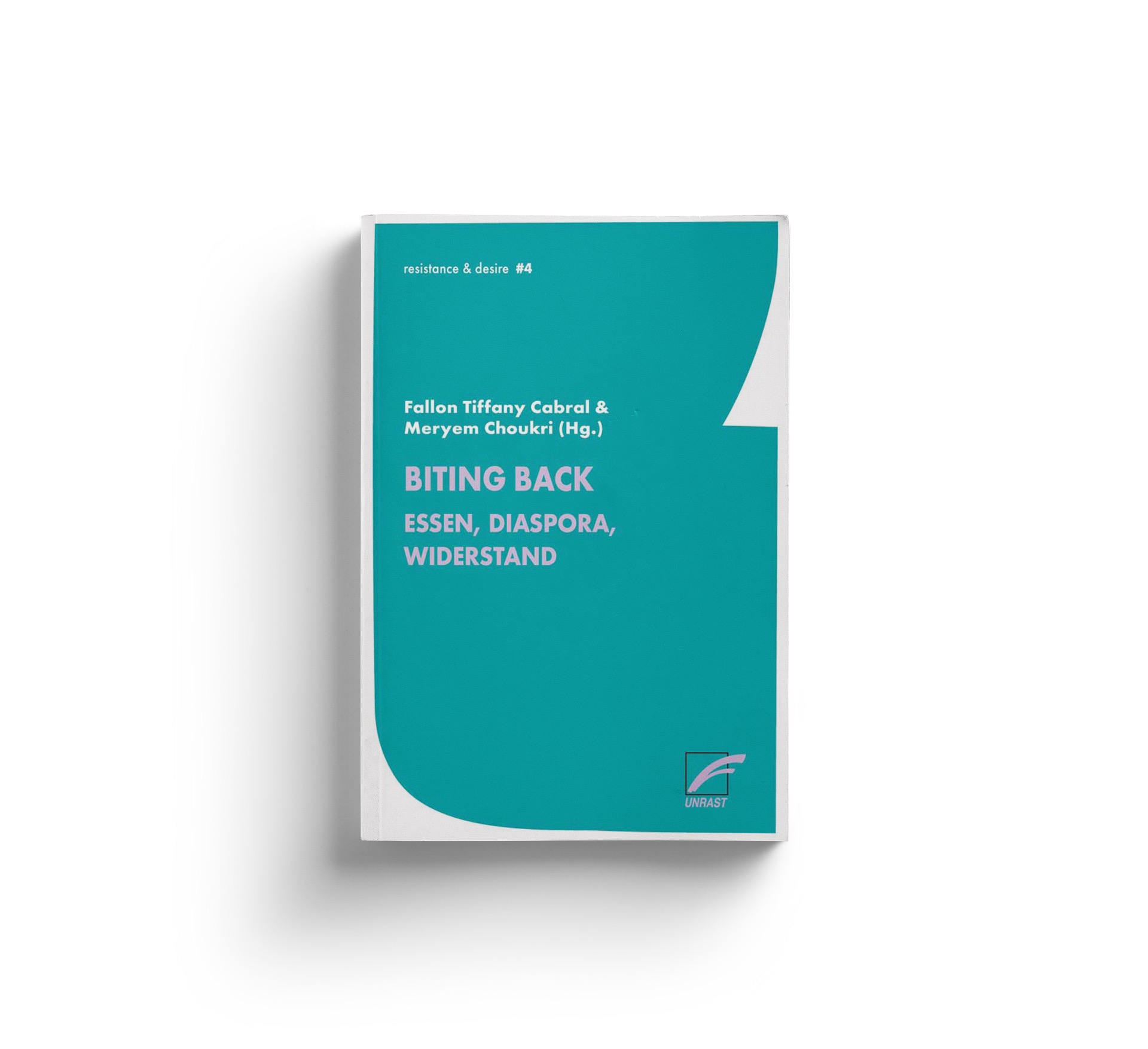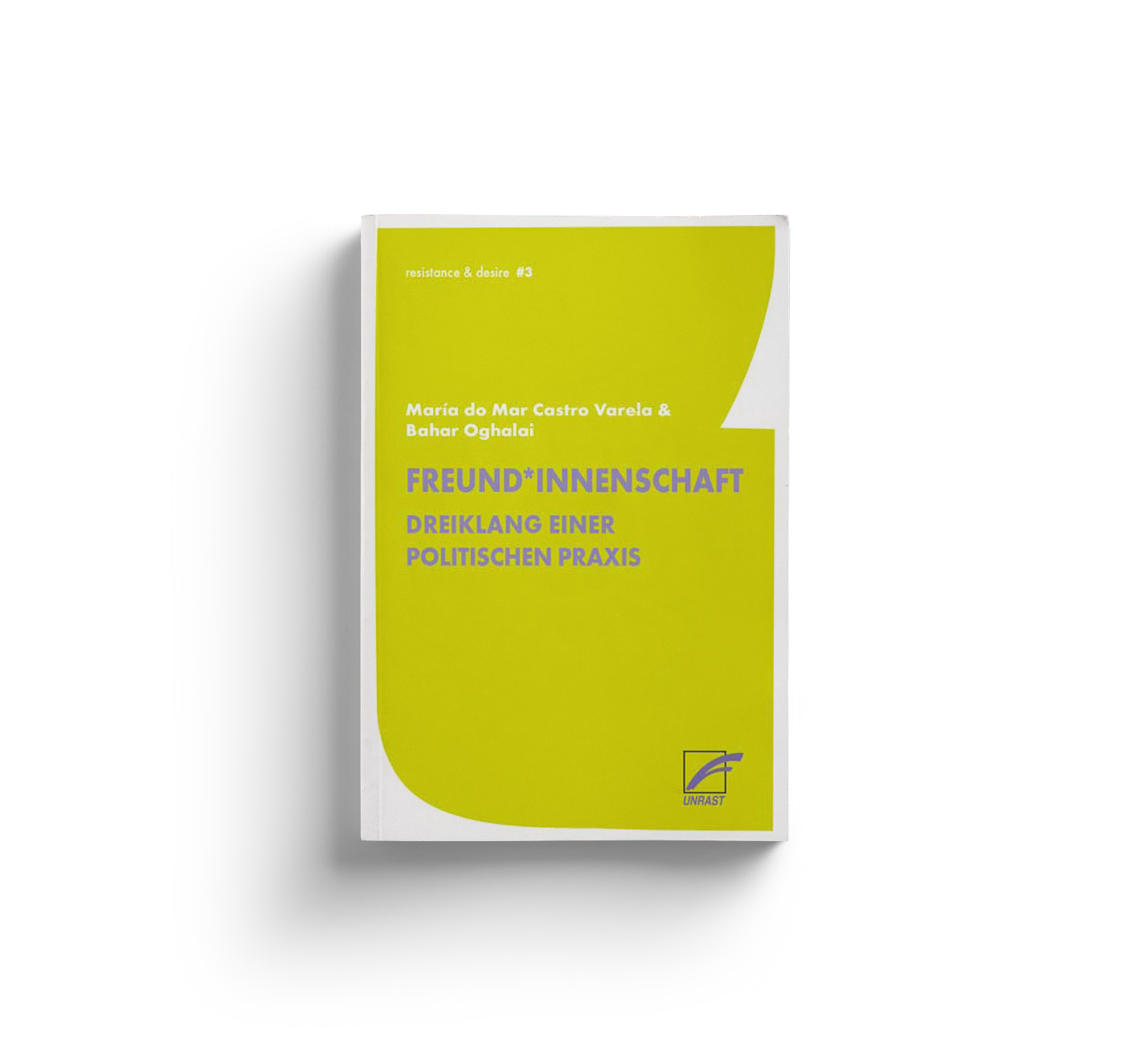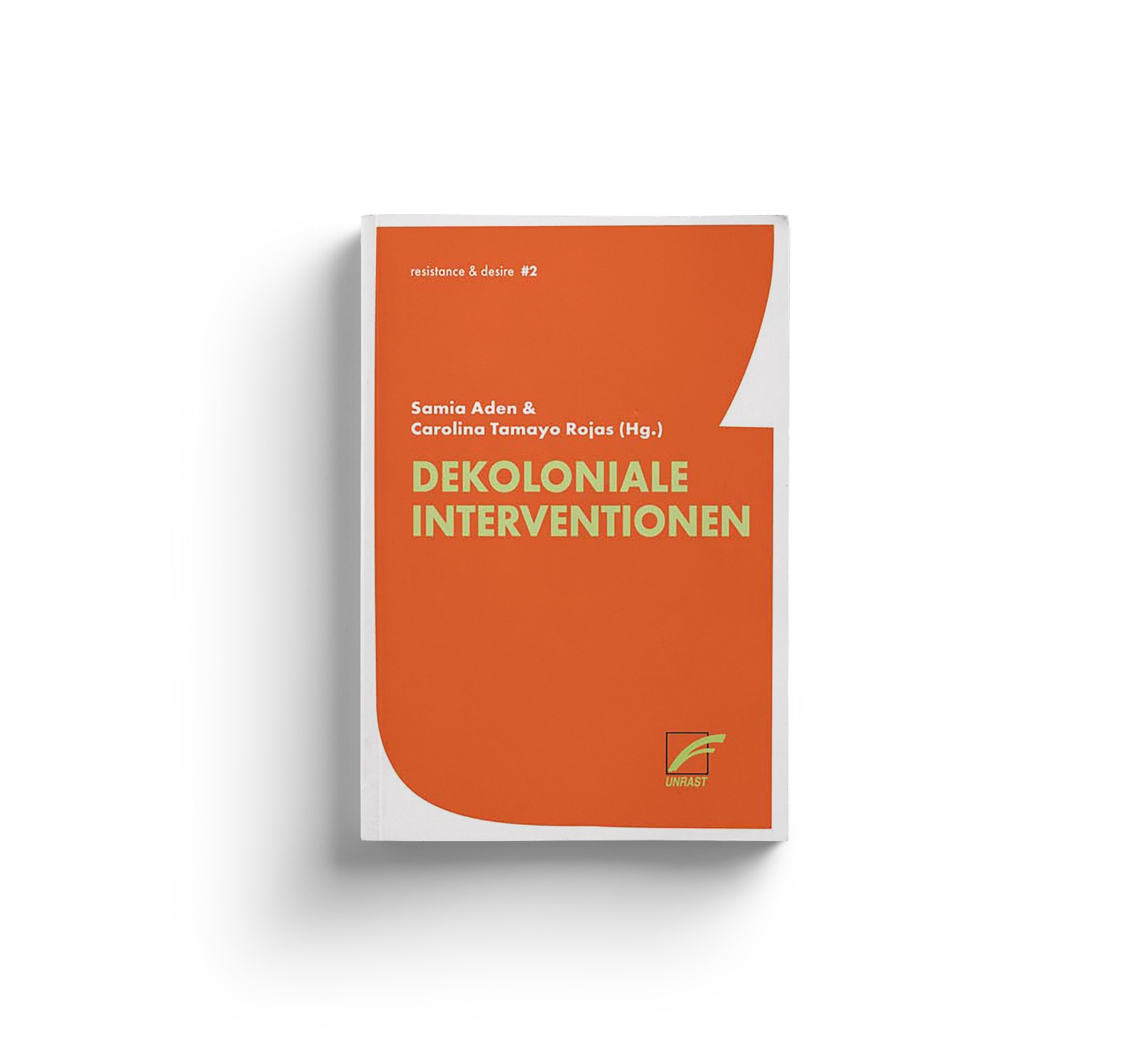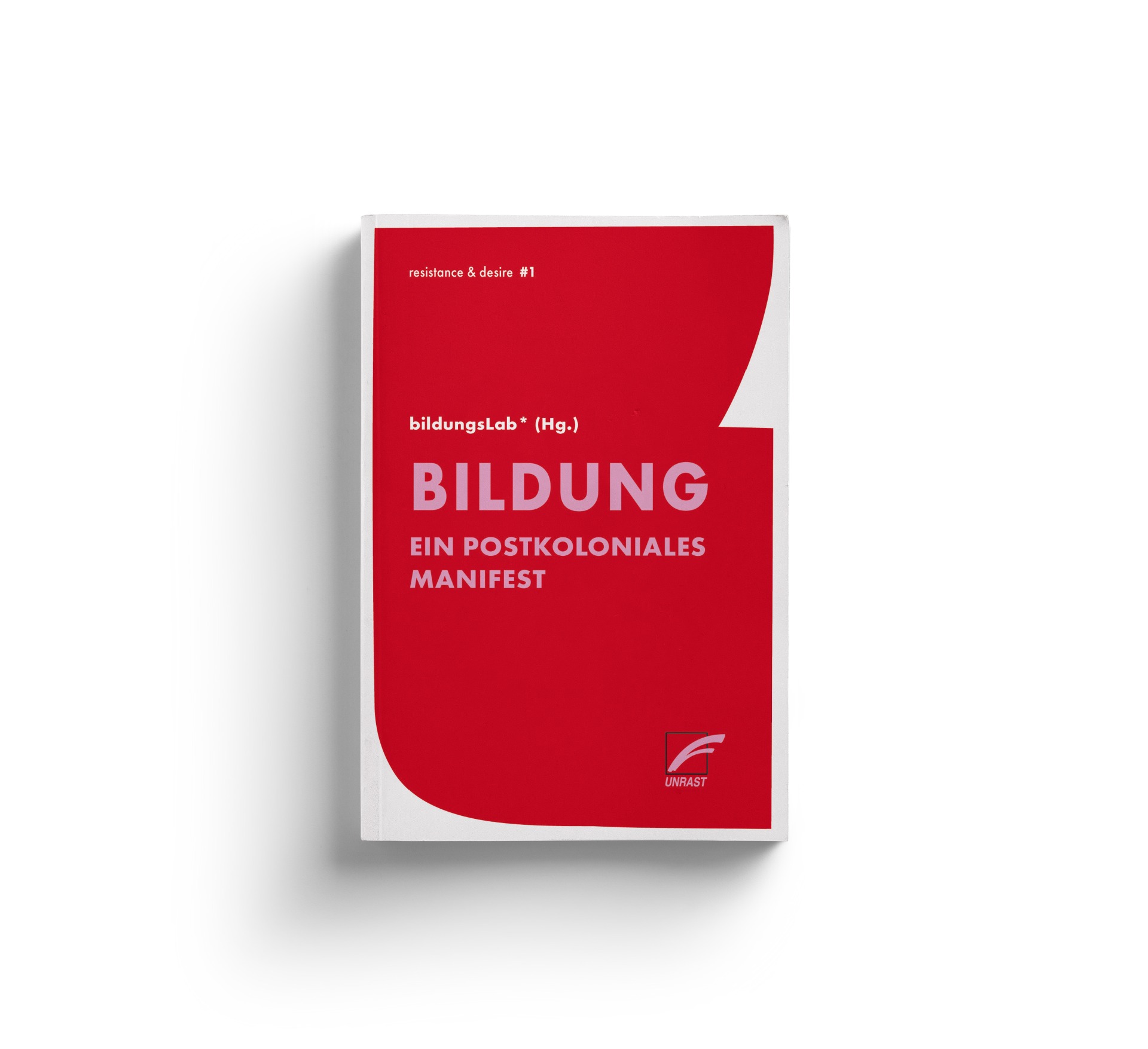Book Series

#7
Beyond Horror. Horror, Resistance, and Visions
Injustice, suffering, fear – all of these are consequences of horror. Whether in the oppressive episodes of the private sphere or in the dark times of the political: pain and affects such as fear and disturbance are, not without reason, the source and inspiration for numerous forms of artistic expression. It is an attempt to give voice to the dismay and suffering, to capture the horror. However, rarely is horror addressed in its unvarnished form and its political dimension.
In Beyond Horror – Horror, Resistance, and Visions, we turn our focus and examine the transformative power of horror as a creative means of resistance in a world shaped by power structures and inequality. We view the horror film as an artifact that raises deeper societal and political questions. The volume brings together two essays, a screenplay, and explores the topic from theoretical, discursive, aesthetic, and practical perspectives. In the hope of finding a resistant approach to horror that does not turn a blind eye, but instead confronts it.
With a concluding word by María do Mar Castro Varela.
ISBN 978-3-89771-402-1
Publication date March 2025
Pages ca. 112, pocket size
Cover design Tasnim Baghdadi

#6
Art that cares. Art(pedagogy) as collective care
In times of global crises and increasing divisions, we are called upon to examine viewing habits and perspectives and, if necessary, to 'unlearn' them. Colonial residues in education, politics, culture and society can also be addressed with a new perspective on the theory, practice and mediation of art.
Art makes it possible to enter into authentic communication with one another, to encounter ourselves, to (further) educate ourselves and also to communicate with our environment. Aesthetic educational processes hold the potential to pause, to set rigid positions in motion, to open up new spaces for thought and to allow new things to grow.
Building on this understanding of art and art education, the sixth volume in the resistance & desire series examines aesthetic approaches in the educational context, which the authors see as a network of care for oneself and for others.
ISBN 978-3-89771-625-4
Publication date October 2024
Pages ca. 90, pocket size
Cover design Tasnim Baghdadi

#5
Queer-feminist positions. Starting point: South America and the Caribbean
In movements such as Movimiento de Mujeres y Diversidades Indígenas por el Buen Vivir and Ni Una Menos or symbols such as a green scarf for the right to legal, safe and free abortion, a decolonial feminism committed to the struggle against cis-heteronormative patriarchy in Latin America and the Caribbean emerges.
Ongoing economic crises as well as macho and infrastructural violence against feminized BPoC bodies drive the diasporic movements and knowledge productions present in this anthology. Based on reflections by Latin American and Caribbean authors on cultural and artistic approaches, the contributions demonstrate the transversality of feminist practices in a wide variety of ways. Queer-feminist positions brings together decolonial, counter-patriarchal ideas and diasporic knowledge of feminized bodies and draws an alternative geography of queer-feminist militancy, political activisms and transnational alliances.
With contributions by Valentina Buitrago García, Grila Vallejo, Rafa Wahl-Herrera, Carla Bobadilla, Trovania Delille, Katya Meyer, Verónica Orsi, Carolina Tamayo Rojas and Lola Bhajan.
ISBN 978-3-89771-381-9
Publication date March 2024
Pages ca. 118, pocket size
Cover design Tasnim Baghdadi

#4
Biting Back. Food, Diaspora, Resistance
Have you eaten yet? - Have you eaten anything yet? The topic of food occupies us every day, and so it is no wonder that the number of cookbooks and guidebooks on healthy food, on diets, on sustainable nutrition is hard to keep track of. Looking at the topic of food from a critical and diasporic perspective makes questions of belonging, discrimination, and identity close and tangible, which are otherwise usually negotiated on a more intellectual level.
For example, what desires and wishes do we express through what we (don't) eat? What (anti-)colonial traces can be traced in different drinks, dishes, foods, in eating and drinking habits? How are class and food related to each other? Can food, can cooking be resistant or political? Poems, short prose, essays, autobiographical reflections, scientific analyses, scenic texts - as diverse as the questions are the approaches the authors* choose to question supposed unambiguities, to renegotiate national and cultural attributions, to draw connections between the (post)colonial past and the present, between the personal and the political.
With contributions by Maria González Leal, Christelle Nkwendja-Ngnoubamdjum, Sara Djahim, Pajam Masoumi, Sarah Ahmed, Emine Demir, Purnima Vater, Anna So-Shim Schumacher, Miriam Yosef, Verónica Orsi, Lalitha Chamakalayil, Mariakutty Chamakalayil, Matthew Chamakalayil, sal, Susan Djahangard, Natali Bhalchandra Abhyankar, Thu Hoài Tran, Meryem Choukri and Fallon Tiffany Cabral
ISBN 978-3-89771-373-4
Publication date October 2023
Pages ca. 88, pocket size
Cover design Tasnim Baghdadi

#3
Friendship. Triad of a political practice
Justice is the goal, but with whom is it to be achieved? This is by no means a marginal question asked alongside the supposedly central political discussions, but an explicitly political issue at the heart of any social movement.
It is worth thinking here about another concept of political practice: friendship, usually relegated to the private sphere and condemned from the political terrain. Yet friendships are genuinely political relationships whose fundamental characteristics transform our view of the world.
In times of multiple crises and growing global inequalities, this essay traces existing theories of friendship in order to make them productive for a concept of friendship as political practice.
ISBN 978-3-89771-207-2
Publication date March 2023
Pages 88, pocket size
Cover design Tasnim Baghdadi

#2
Decolonial Interventions
The "knowledge of the world" in Western Europe is not innocent, objective or decontextualized, but emerged in historically grown relations of power and domination. Only in the continuity of colonial, academic practices have subjects been produced and (re)produced as deficient >others< (othering). But who determines what is or may be considered >knowledge< and/or >education<?
The authors* set out in search of decolonial knowledge productions and move the perspectives of marginalized subjects from the margins to the center. Reflective, (self)critical, unruly, ironic, indignant, their texts want to reveal the violence of knowledge (epistemic violence) and western-eurocentric representational power to a certain extent and thus deconstruct it. In doing so, the authors* also consider places and structures of power and domination against the background of their own positionality and entanglement. Their preoccupation with the (re)production of hegemonic notions and ideas leads them in the end to the question of an ethics that relates to this.
ISBN 978-3-89771-181-5
Publication date October 2022
Pages 100, pocket size
Cover design Tasnim Baghdadi

#1
Education. A postcolonial manifesto
What is education? Most publications that claim to be able to answer this question usually cite a number of white European men who have taught at universities or still do so. The bildungsLab* intervenes in this taken-for-grantedness and presents - as a prelude to a multi-part series under the title resistance & desire - a manifesto that wants to encourage linking education and experience.
The bildungsLab* reflects on education from a wide variety of perspectives: sometimes personal, sometimes theoretical, sometimes poetic, sometimes funny, sometimes serious - but always precise and clever. They call for a rethinking of Eurocentric-humanistic notions of education and a reflection on a postcolonial education in a plural society.
ISBN 978-3-89771-091-7
Publication date October 2021
Pages 108, pocket size
Cover design Tasnim Baghdadi
Review by an.schläge (in German)
